FedEx helps WRI drive mobility solutions across the world
The Mobility and Accessibility Program (MAP), sponsored by FedEx, helps public bus systems optimize operations, revolutionize planning and routing, and reduce environmental impacts. Combining the FedEx mastery of transportation logistics with the expert analysis of WRI Ross Center, we are delivering transportation breakthroughs to an avid international audience.
The impact is far-reaching. Buses are the world’s leading mode of public transport. They account for 63% of all total public transportation usage – higher than the sum of all other modes combined. By making them an easier, safer, more affordable choice, our collaboration is improving quality of life for millions of people.
To date, we’ve trained more than 7,000 bus drivers and officials in 50 cities, affecting more than seven million commuters in the four MAP countries: Mexico, India, China and Brazil. We’ve helped introduce the first hybrid and electric bus fleets in several Latin American cities. We’ve supported the launch of new bus networks in India and assisted China’s Ministry of Transport with achieving emission reduction goals. Successful projects have gone global, scaling beyond our core countries.
Over the last year, MAP made important gains on the ground:
In India, we helped Bangalore restructure its bus fares, a win that lowered customers’ costs for shorter trips and increased the system’s ridership by 33%. In addition, the FedEx-sponsored innovation challenge identified new solutions for the public bus sector, including converting buses from diesel to electric, retrofitting filters to reduce emissions and using technology to help riders reserve seats on high-quality buses.
In China, we helped 25 cities adopt big data to monitor transit quality of service by fostering development of a public-private initiative with the Ministry of Transport, the China Academy of Transport Science and mobile app developers. We also supported Suzhou in developing a system that tracks buses and passengers in real-time, informing distribution and optimization for better service.
In Mexico, drawing on FedEx expertise in electric fleets and asset management, we assembled up-to-the-minute research that complements a new national strategy on electric vehicles. This guide will enable cities everywhere to explore the feasibility of this revolutionary technology.
In Brazil, we convened 10 members to establish the first national forum for transit administrators to collaboratively improve public transit quality and attract riders. We also worked with the city of Uberlandia to launch a bus rapid transit (BRT) route, boost the use of cashless fare cards and expand customer
We also updated and scaled the Vehicles and Fuels Bus Selection Tool, first developed in 2012, to help transport authorities assess the potential for low-emission bus implementation in new places, including Mexico, India, Indonesia, Chile, Bhutan, Sri Lanka, Thailand, Vietnam and the Philippines.
These results reflect the powerful synergy of our collaboration. Together, FedEx and WRI Ross Center are helping cities create the bus systems of the future and scaling solutions through robust international outreach.
